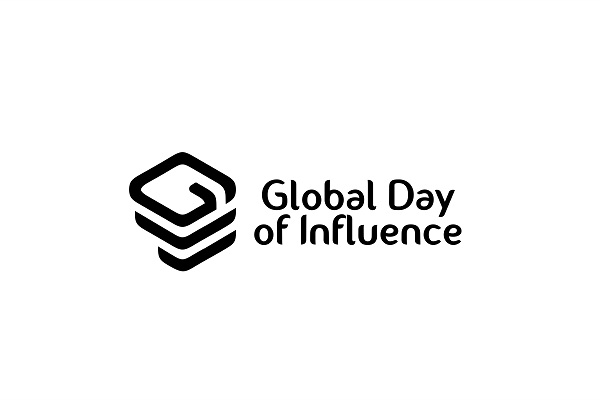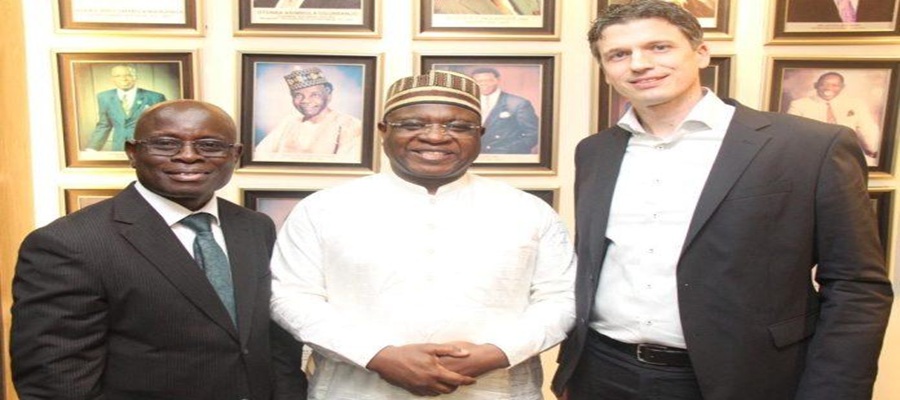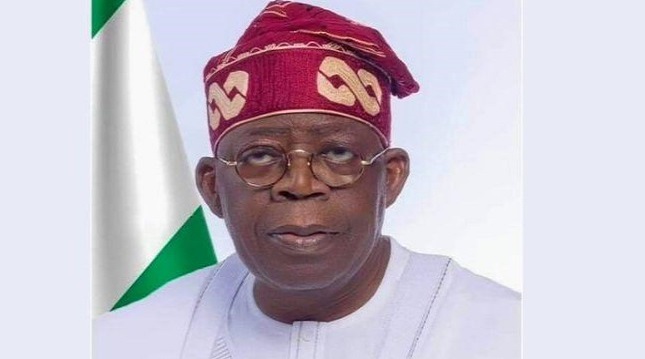News
Why November 22nd Should Be Recognized As Global Day of Influence

November 22, 2020 will mark the inaugural edition of the Global Day of Influence – a day to discuss, interrogate and celebrate the concept, principles, and impact of influence in today’s world.
Ayeni Adekunle, founder, Black House Media (BHM), speaking on the Global Day Of Influence, said “We can’t compel or force people, companies and governments to be and do better.
“But as we enter the age of influence, there’s no better time to begin discussing and activating the resources that will drive us towards the kind of leadership we so badly need.
“The kind of direction we need for our lives, for our families, for our nations and for the world.”
“Having a day like GDI became necessary having realized the potential for good or otherwise in an age where truth is at risk, trust is endangered and the most vulnerable amongst us, helpless,” Ayeni added.
Following a series of events which has rocked the world in recent times, it has become imperative for all stakeholders to evaluate the power and potential of negative influence.
Some of recent impacts of influence and its adverse effects include the up rise in suicide bombings over the last decade.
According to the U.S National Consortium for the Study of Terrorism, suicide bombing increased from an avergage of 4 per year in 2001, to over 400 per year by 2011, due to the precedent set by the 9/11 bombing.
A more recent example of the power of misinformation and influence is the 2016 U.S election, as many investigations are still being carried out to determine the impact of false narratives in swaying the outcome.
According to Washington Post’s review of a study by Ohio State University researchers, fabricated stories favoring Donald Trump were shared a total of 30 million times, nearly quadrupling the number of pro-Hillary Clinton shares leading up to the election.
The study also shows that the most widely circulated stories were shared by well meaning Americans who believed these false narratives and became advocates for the message carried in these stories.
The Global Day of Influence has been put together to recognise the responsibility of those with influence, as well as to highlight and disincentivize the role played by impressionable audiences in promoting a circle of false narrative, skewed sentiments and negative influence.
“We all need to answer a call of duty, to help people and companies and governments communicate more honestly and responsibly,” says Ayeni.
According to the Statista, the average daily digital interactions per person stands at about 1,400, while in-person interactions is estimated to be around 25 for middle aged adults.
This means that humans are interacting more than we have in our entire history. The speed in which information travels is faster, and more impactful, hence measures must be put in place to ensure the right narratives are being spread.
The selected date for Global Day of Influence pays homage to the great Austrian-American public relations pioneer Edward Bernays who was born on November 22, 1891. Bernays is widely regarded as “the father of public relations”
News
NGX Unveils Net-Zero Plan for Greener Capital Market

Nigerian Exchange Limited (NGX) has launched the NGX Net-Zero Programme to guide listed companies toward clear carbon reduction pathways and enhanced climate disclosures aligned with global investor standards.

NGX
The high-level launch engaged chief executives of quoted firms alongside development partners including German Investment Corporation KfW, DEG, and African Foresight Group (AFG), NGX’s implementation partner. Issuers and investors discussed financing decarbonisation, sustainability practices, and attracting climate-aligned capital.
NGX Group Chairman Dr Umaru Kwairanga described the initiative as concrete climate action, commending partners for two years of groundwork. “Today marks leadership and decisive action. Climate change has become a core business imperative, with capital markets mobilising capital and setting standards,” Kwairanga said.
He positioned NGX Net-Zero to support emissions measurement, disclosure, capacity building, and sustainable finance access, urging CEOs to embrace it strategically rather than as compliance. Kwairanga reaffirmed NGX’s goal to make Nigeria’s capital market Africa’s green finance hub.
Group CEO Temi Popoola called climate action a business imperative, noting sustainability-embedded firms attract capital, manage risks, and stay competitive. DEG Management Board Member Monika Beck highlighted partnerships scaling impactful, commercially viable climate solutions.
The event closed with a ceremonial gong marking the programme launch and send-off for outgoing DEG Regional Director Bernd Telemann.
News
Nigeria Off EU High-Risk Money Laundering List in Major Financial Win

Nigerian Financial Intelligence Unit (NFIU) has hailed Nigeria’s removal from the European Union’s list of high-risk third countries for Anti-Money Laundering and Countering the Financing of Terrorism (AML/CFT) as a landmark achievement endorsing the nation’s reform efforts.

Nigerian Financial Intelligence Unit (NFIU)
NFIU CEO Hafsat Abubakar Bakari said the delisting, contained in European Commission Delegated Regulation (EU) C (2025) 8460 adopted December 4, 2025 and effective January 29, 2026, affirms sustained AML/CFT and Counter Proliferation Financing (CPF) reforms.
The move follows Nigeria’s exit from the FATF Jurisdictions under Increased Monitoring after addressing strategic deficiencies, alongside Burkina Faso, Mali, Mozambique, South Africa and Tanzania.
Bakari noted the European Commission recognised Nigeria’s strengthened AML/CFT effectiveness, closed technical gaps, and fulfilled FATF Action Plan commitments leading to grey list removal in June and October 2025.
The delisting eliminates enhanced due diligence requirements for EU financial transactions, easing compliance, boosting cross-border flows, and enhancing Nigeria’s appeal for European trade, investment and partnerships.
The NFIU attributed success to President Bola Ahmed Tinubu’s political will and collaboration among National Assembly, law enforcement, regulators, judiciary, private sector and development partners.
The agency reaffirmed commitment to ongoing FATF, GIABA, EU engagement and domestic framework resilience to maintain international confidence in Nigeria’s financial system.
News
FG Directs Banks, Fintechs to Remit VAT on Service Fees

The Federal Government has directed all banks and fintechs to collect and remit 7.5 per cent value-added tax on certain electronic banking services, effective Monday, January 19, 2026, according to an email notice issued by payment platforms.

The VAT will apply to electronic banking charges, including mobile money transfers, USSD transaction fees, and card issuance fees, according to an email notice on Wednesday shared with customers by Moniepoint.
For example, if a bank charges N100 to make a transfer, the 7.5 per cent VAT will be applied to that service fee, not the money being sent.
“From Monday, January 19, 2026, we are required to collect a 7.5 per cent VAT, to be remitted to the Nigerian Revenue Service (formerly known as the Federal Inland Revenue Service).
“VAT will apply to certain banking services that include electronic banking charges such as mobile banking fees (transfers), USSD transaction fees, and card issuance fees,” the email read.
Other operators are expected to issue similar notices to their customers in the coming days. Services that will remain exempt include interest earned on deposits and savings, meaning customers will not pay tax on the returns from their accounts.
The NRS, formerly known as the Federal Inland Revenue Service, has set the deadline to ensure that all commercial banks, microfinance banks, and electronic money operators comply with the collection and remittance requirement.
Moniepoint stressed that this is not a price increase but a statutory obligation. “Moniepoint is required to collect and remit VAT to the Nigerian Revenue Service,” the company said in a statement.
The move is part of the government’s broader efforts to standardise VAT collection on digital financial services and expand revenue generation amid Nigeria’s growing digital economy. VAT on banking transactions is not entirely new; the NRS is now enforcing uniform collection rules across all platforms, ensuring compliance across the sector.
Customers have been assured that the new tax will be clearly itemised, with the VAT shown separately on transaction statements and reports.
In December, several commercial banks informed customers that the N50 stamp duty would be deducted on electronic transfers of N10,000 and above, following the commencement of provisions of the new Tax Act.
The charge, previously known as the EMTL, has now been formally reclassified as stamp duty and will be applied as a one-off fee on qualifying electronic transfers.

 E-Financial2 days ago
E-Financial2 days agoAngst as FG Demands 7.5 Percent VAT on Mobile Bank Transfers, USSD

 News2 days ago
News2 days agoMoniepoint Launches Second Cohort of DreamDevs Initiative to Double Down on Africa’s Tech Talent Pipeline

 E-Financial2 days ago
E-Financial2 days agoNGX lists 3.156bn UBA shares, boosting capital to N513Bn

 E-Financial2 days ago
E-Financial2 days agoThe Missing Pieces in Nigeria’s Banking Recapitalisation

 Telecom2 days ago
Telecom2 days agoGlo Unveils Immersive Gaming Experience, Travel Saga

 E-Business2 days ago
E-Business2 days agoHalf of Global Companies Build SOCs to Enhance Cybersecurity, with a Focus on Human Expertise

 General News2 days ago
General News2 days agoNITDA DG Reaffirms Nigeria–U.S. Partnership on Data Privacy, AI and Cybersecurity

 General News2 days ago
General News2 days agoParadigm Initiative Condemns the Internet Shutdown and Media Restrictions in Uganda Ahead of the 2026 General Election



























